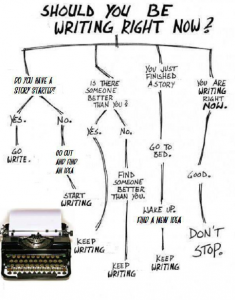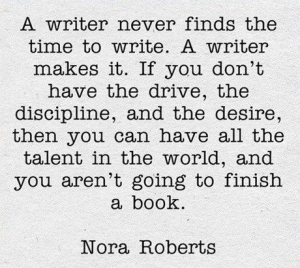 After implementing all of the strategies for organizing your writing life, then…
After implementing all of the strategies for organizing your writing life, then…
Finish Up, Follow Through and Have Fun!
Almost nothing is worse than spending a lot of time working on a writing project and then not finishing it and meeting your deadline(s). Be sure and complete your writing and send it in as scheduled (or complete the last step in the process). This “completion step” is important because it will bring you deep personal satisfaction. Following through gives you a sense of accomplishment, and confidence to take on future projects. Why? Because you will know that you will stay the course and follow through. Gentle self-discipline gives you this confidence in your ability to take things on.
As Henry Ford said, “There is joy in work. There is no happiness except in the realization that we have accomplished something.”
When you’re finished, it’s important to take time to pat yourself on the back (don’t expect anyone else to do this for you!). Celebrate your achievements. Schedule some “down time.”
Europeans take a month off each year and go “on holiday.” We Americans are lucky to get two weeks off, and even then we often can’t slow down long enough to appreciate what we’ve accomplished. This can lead to burnout. Take time to do the things you love. This may be as simple as enjoying your kids or grandkids photos on Facebook and watching a good movie, or taking a cruise to the Caribbean.
If you are a person who tends to engage in unpredictable creative processes, like writing, I’ll leave you with another great Henry Ford quote to inspire you, “If money is your hope for independence, you will never have it. The only real security that a man can have in this world is a reserve of knowledge, experience and ability.”





